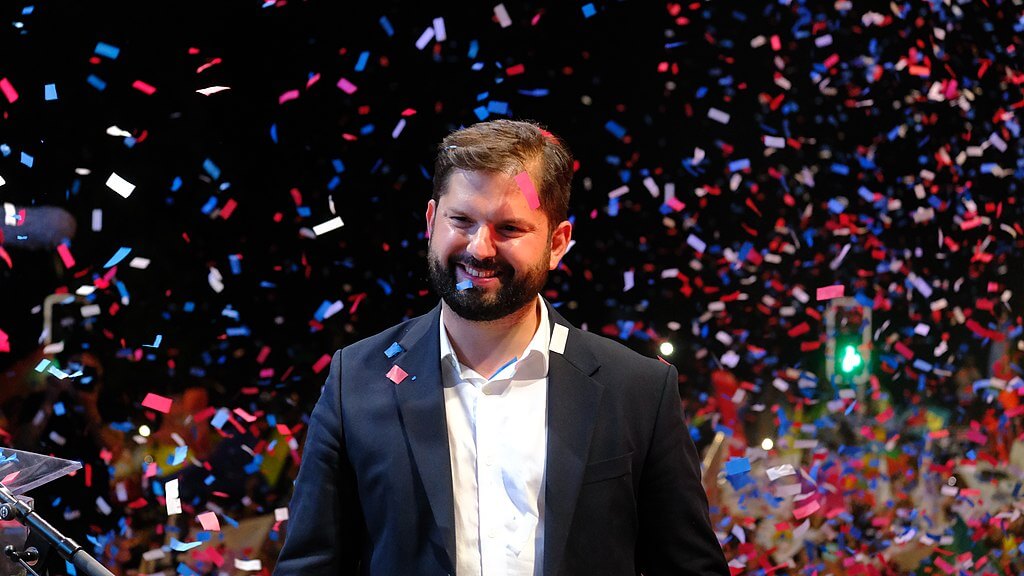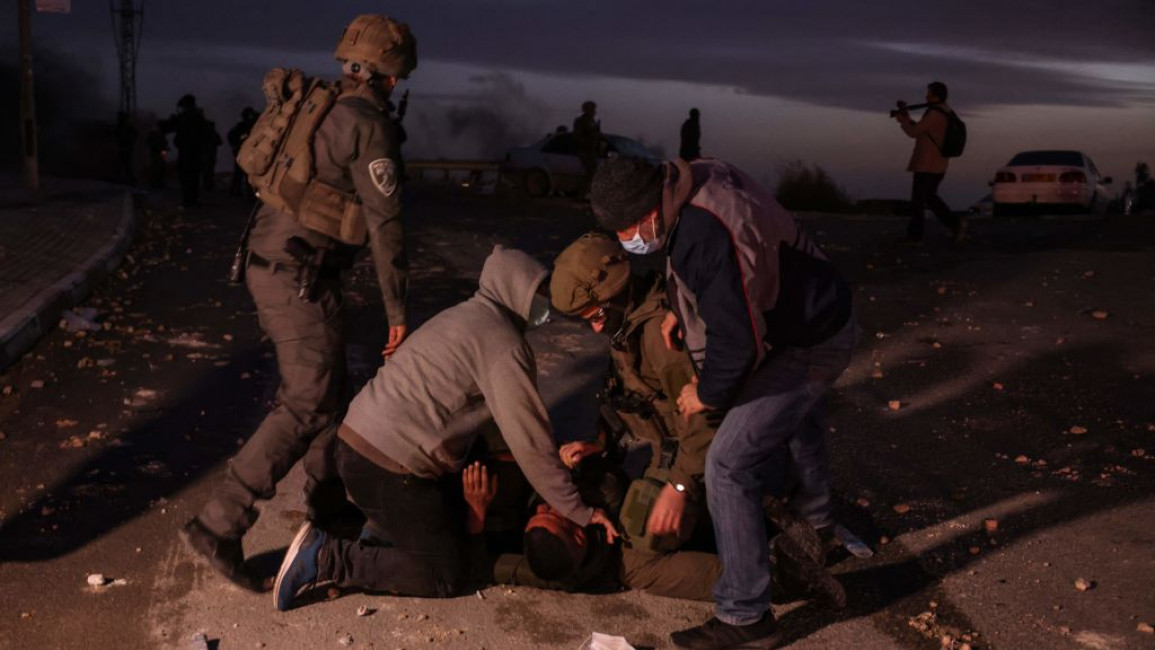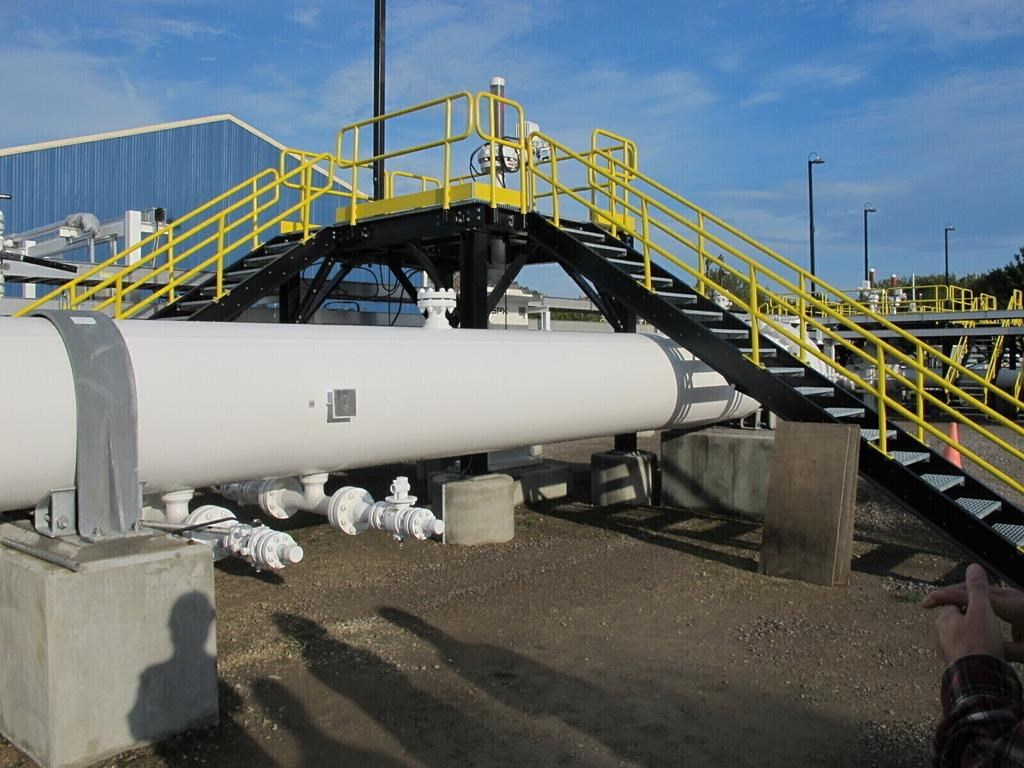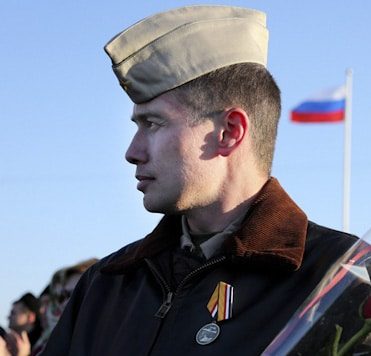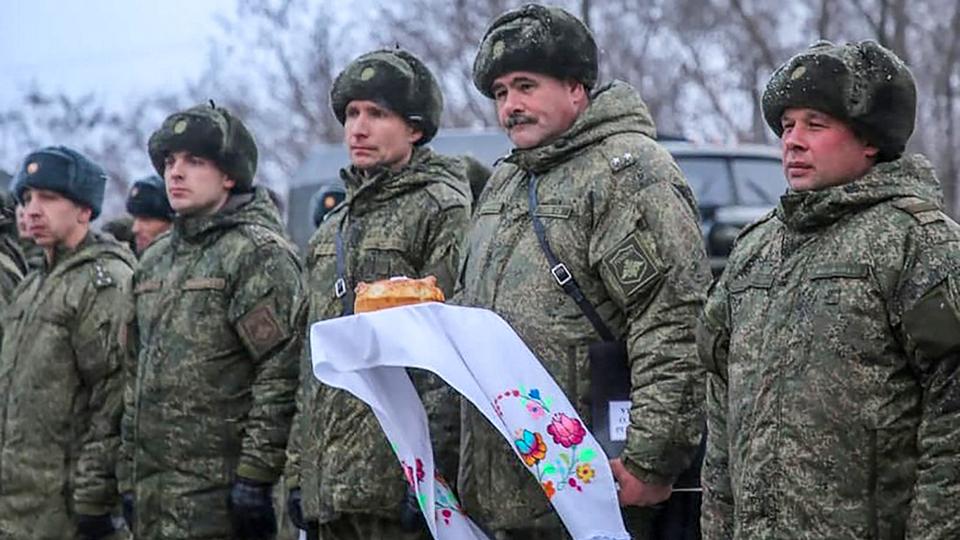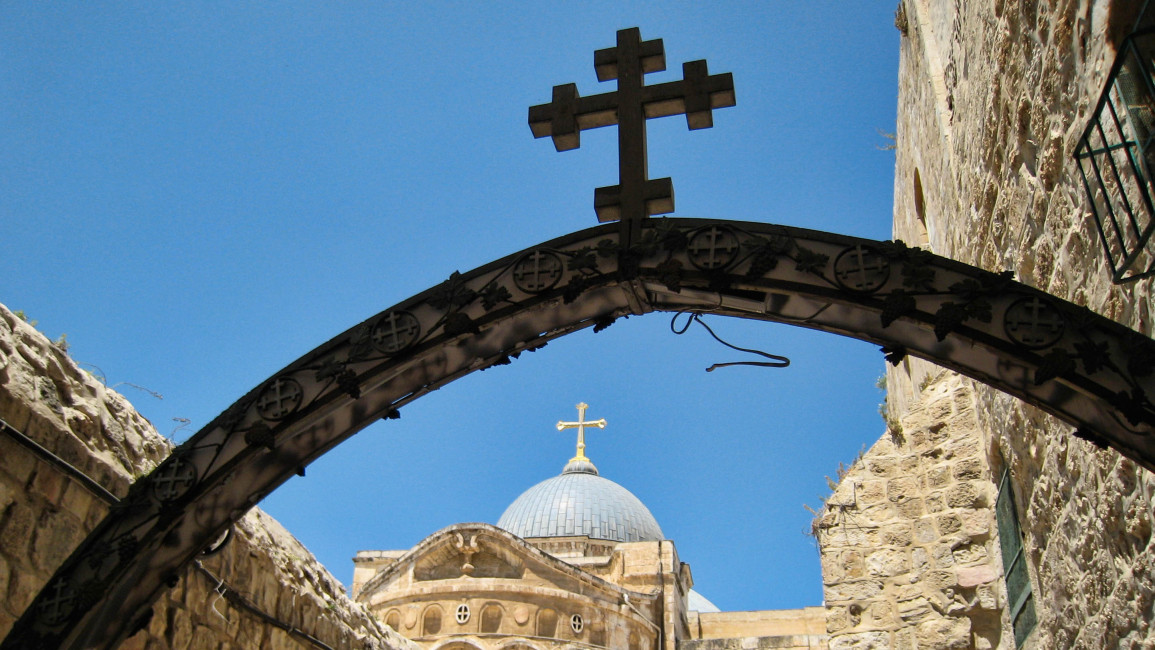
Analysis
In-depth
Alessandra Bajec
13 January, 2022
In-depth: The Palestinian Christian presence in Jerusalem is under threat due to institutionalised discrimination, attacks by radical Israeli groups, and systematic attempts by settler organisations to take over church property in the Old City.
Palestinian Christians in Jerusalem, the occupied West Bank, and Israel are at risk of disappearing in the face of systematic attempts to drive them out of the Old City and other parts of the Holy Land.
Like every year at Christmas, Christian patriarchs and heads of churches warned of the fate of their communities in the region.
In a campaign launched ahead of festivities, Jerusalem’s church leaders issued a joint statement in mid-December saying that “Christians have become the target of frequent and sustained attacks by fringe radical groups” alluding to Israeli far-right settlers who aim to “diminish" the Christian presence.
These groups, the communiqué denounced, are “often using underhanded dealings and intimidation tactics to evict residents from their homes” and continue to acquire strategic property in the Christian Quarter, in the Old City, causing a decline in the Christian community.
"The systematic effort to push the Christian community out needs to be framed within the broader Israeli policy of dispossession towards the Palestinian people in general"
The statement went on to describe “countless incidents” of physical and verbal assaults against priests and other clergy, and attacks on Christian churches. It also reported vandalism and the desecration of holy sites and church properties, and the ongoing intimidation of local Christians as they go about their worship and daily lives.
Britain’s Archbishop of Canterbury Justin Welby called the Diocese of Jerusalem’s declaration “unprecedented” in a tweet, and co-authored an article with the Anglican Archbishop of Jerusalem Hosam Naoum published in the Sunday Times, which outlines the pressures that have led to an exodus of the community.
They noted that a century ago there were an estimated 73,000 Palestinian Christians in the Holy Land making up at least 10 percent of the total population, and 20 percent of Jerusalem, whereas in 2019 barely two percent are Christian and only 2,000 Christians are left in the Old City.
“Religious extremism is on the rise, there are hostile feelings within the Jewish community toward Palestinian Christians,” Omar Haramy, director of Sabeel Jerusalem, a Palestinian Christian grassroots liberation theology organisation, told The New Arab.
RELATED
The role of Palestinian Christians in shaping Palestine
Analysis
Qassam Muaddi
Jewish local groups with extremist ideologies have for years carried out attacks against Christian institutions in Jerusalem and beyond. The Romanian Orthodox Church in Jerusalem was vandalised during Lent in March last year.
It was the fourth time that the holy site had been attacked in just one month. During Advent in December 2020, a vandal set fire to the Church of All Nations in the Garden of Gethsemane in East Jerusalem, the fourth attack against the church.
Attacks against Christian sites are typically perpetrated by groups such as Lehava and “price tag” movements - extremist Israelis who act in retaliation for any policy seen as threatening the settler movement in the occupied Palestinian territories.
Violent incidents have been on the rise in Jerusalem, with at least 24 attacks on churches in the last six years, according to a report published by ICOHS. There have been also increasing numbers of reports of priests and local worshippers being verbally abused, spat at, or aggressed.
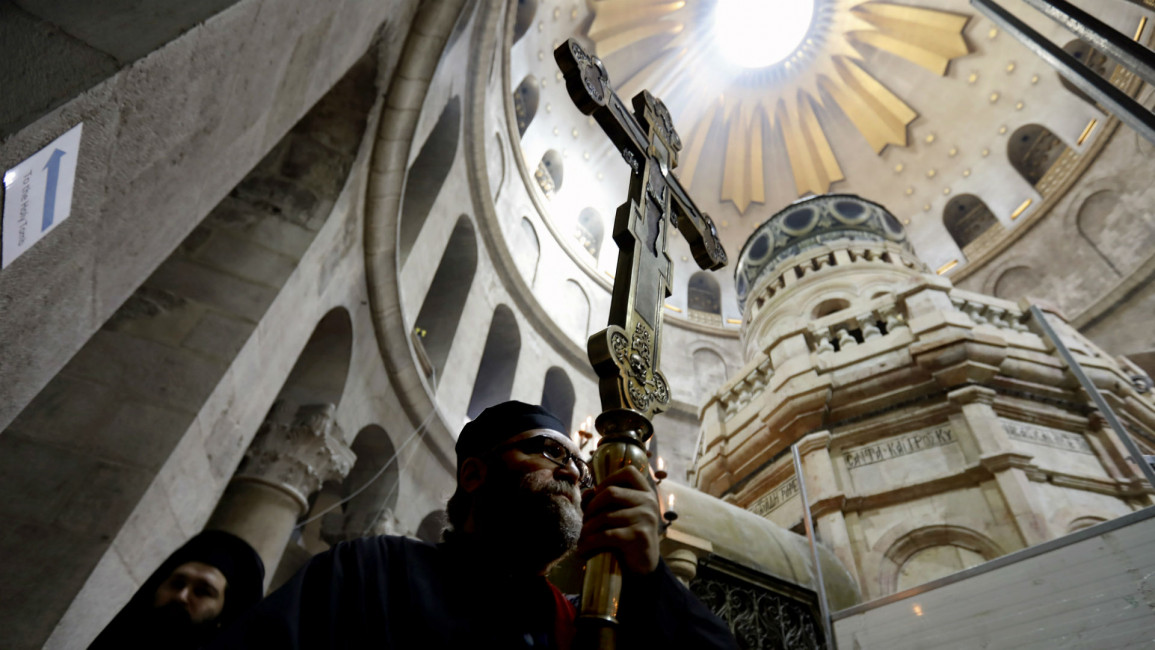
Last May, three settlers assaulted and beat clergymen from the Armenian Orthodox Patriarchate on their way to the Church of the Holy Sepulchre in Jerusalem for prayers.
Members of the different churches in the city are regularly harassed by Israeli security forces and face restrictions. In late April of last year, Israeli police erected barricades around the Church of the Holy Sepulchre barring Orthodox Christians from accessing the holy site.
In 2018, the Israeli parliament introduced a tax bill in 2018 that would enable Jerusalem’s municipality to amend a religious tax exemption, resulting in heavy taxation on church-owned commercial properties. Local Christian leaders complained, stating that it was a move to weaken the Christian presence in Jerusalem, and closed the Church of the Holy Sepulchre to the public in protest for three days.
Moreover, there have been attempts by settler organisations to gain control of church-owned properties close to Jaffa Gate, the main entrance to the Christian and Armenian quarters. The Zionist organisation Ateret Cohanim works on populating the Old City and other East Jerusalem neighbourhoods with Jewish residents by buying properties from non-Jewish owners.
The Greek Orthodox church possesses about a third of the land in the Old City and key sites around Jerusalem.
"Religious extremism is on the rise, there are hostile feelings within the Jewish community toward Palestinian Christians"
“Church leaders are very concerned about this development. They see it as a way to undermine the Christian presence in Jerusalem, and disrupt pilgrim routes,” Dorien Vanden Boer, Policy Officer for Israel/Palestine at CIDSE, a network of Catholic social justice organisations, told The New Arab.
Jewish extremists, with the backing of Israeli authorities, are taking steps to change the identity and character of the Old City’s Christian quarters.
“The Israeli government and municipality of Jerusalem have been encouraging regular tours and other activities with Jewish visitors in the area with the intent to change its demographic character,” Sabeel Jerusalem’s director Omar Haramy, a long-time Palestinian Christian campaigner and advocate for peace and justice, said.
He indicated that Christian communities in East Jerusalem are negatively impacted by the Israeli military occupation and illegal annexation in two main ways that accelerate their flight.
Firstly, Palestinian Jerusalemites pay a heavy price for the family reunification law, which prohibits Palestinian citizens of Israel who marry Palestinians from the West Bank or Gaza from living within Israel, including illegally annexed Jerusalem.
They must either move to the occupied territories and lose their Jerusalem residency ID or remain separated from their spouses and maintain their residency status - an Israeli measure aimed at preserving a Jewish majority over Palestinians.
Christians, as a minority, are particularly affected by this law as they have to choose their partners from within smaller communities.
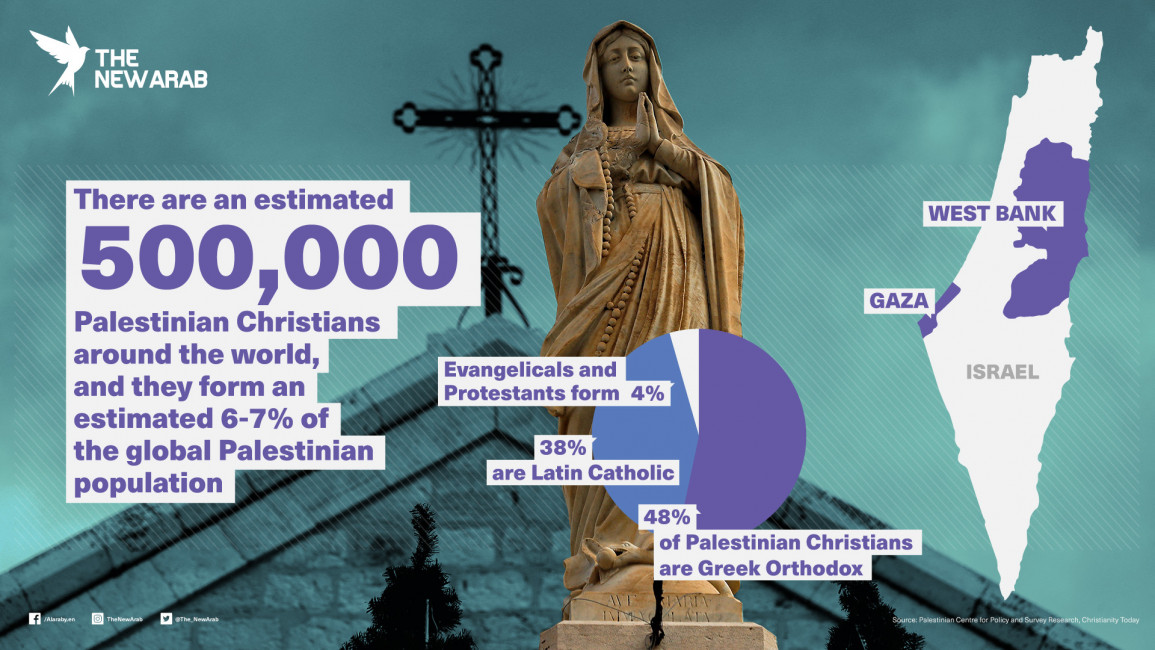
Secondly, as a highly educated population, Palestinian Christians struggle with inadequate educational services, as the Israeli government has continually reduced funding for Christian schools, resulting in higher tuition fees.
Church-based schools, which once provided free education for Palestinian Jerusalemites, and substituted the Jerusalem municipality’s lack of assistance to Palestinians in many areas, have seen an increase in taxation. Consequently, more Christians have moved out of the city to continue their education in Christian schools in the occupied West Bank.
A lack of housing for Christians living in Jerusalem is another factor that leads to the emigration of Christians. Additionally, Palestinian Jerusalemites are denied building permits for new homes or the expansion of their property in the Old City and East Jerusalem.
According to Omar Haramy, Christian Jerusalemites who are financially burdened and deprived of basic services have a greater incentive to live in the occupied West Bank, where they can access job opportunities via Christian networks and feel more integrated into Palestinian society.
"Violent incidents have been on the rise in Jerusalem, with at least 24 attacks on churches in the last six years"
Recent research conducted by the Palestinian Centre for Policy and Survey Research (PSR) shows that Christians make up less than 1% of the population in Palestine. Recent surveys estimate that of the 162,000 Palestinian Christians living in Israel and Palestine in 2020, the majority live inside Israel (excluding East Jerusalem) with the remaining 52,000 distributed throughout East Jerusalem (10,000), the West Bank (40,000) and the Gaza Strip (2,000).
Haramy added that Christian Zionists play a detrimental role in disseminating the belief that God gave the Holy Land to the Jewish people, including attempting to convince the Palestinian Christian community of the idea that it is a Christian’s duty to support the State of Israel, and that such support would result in accelerating the Second Coming of Jesus Christ.
“Those people try to infiltrate, divide and weaken the Christian community, bringing in their own agenda while hiding behind religion,” he said. “That feeds into fear and ignorance”.
Citing a call issued by Kairos Palestine in 2020, Vanden Boer remarked how the appeal to Christians, churches, and ecumenical institutions challenged the misuse of the Bible through Christian Zionist theology, which legitimises “the right of one people to deny the human rights of another”.
RELATED
Gaza's Christian minority: Israel's unseen victims
In-depth
Emad Moussa
But actions discriminating against Jerusalem’s Christians cannot be isolated from Israel’s ongoing occupation policies against both Muslim and Christian communities across the Palestinian territories. Israel’s adoption of the Nation-State Law in 2018 legalised this institutional discrimination.
“The systematic effort to push the Christian community out needs to be framed within the broader Israeli policy of dispossession towards the Palestinian people in general,” CIDSE’s policy officer highlighted.
Israeli authorities do not take measures to protect the local non-Jewish populations, de facto permitting Israeli extremist groups to assault holy places and church members.
She made it clear that settler violence, fully supported by the Israeli state, has the same goal of displacing all indigenous Palestinian inhabitants from their land, taking over their homes, and continuing the expansion of settlements.
Alessandra Bajec is a freelance journalist currently based in Tunis.
Follow her on Twitter: @AlessandraBajec





